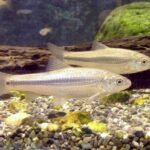Hawaii, USA.- A University of Hawaiʻi–West Oʻahu Mokauea fishpond research project received a $116,381 National Science Foundation grant. Associate Professor Esther Widiasih will research the workings of the Mokauea fishponds to gain insights into traditional Native Hawaiian sustainable aquaculture practices, viewed through contemporary scientific and mathematical lenses.
The research will utilize tools from statistics and applied mathematics while integrating ancient knowledge from Native Hawaiian cultural and fishpond practitioners.
Widiasih will be collecting water quality data and flow pattern of the fishpond to develop a mathematical model that captures the dynamics of key physical parameters and the fishpond circulation patterns. The investigation will include the development of a website to host and manage data collected along with other available data and studies on the Mokauea fishpond and its surrounding areas.
The Mokauea Fishermen’s Association was set up to preserve Mokauea Island and the surrounding fishery as a traditional Hawaiian fishing village. UH West Oʻahu’s involvement with Mokauea Island dates back several years and includes field studies during Ethnomathematics Summer Institutes.
Source: University of Hawaiʻi
Editor at the digital magazine AquaHoy. He holds a degree in Aquaculture Biology from the National University of Santa (UNS) and a Master’s degree in Science and Innovation Management from the Polytechnic University of Valencia, with postgraduate diplomas in Business Innovation and Innovation Management. He possesses extensive experience in the aquaculture and fisheries sector, having led the Fisheries Innovation Unit of the National Program for Innovation in Fisheries and Aquaculture (PNIPA). He has served as a senior consultant in technology watch, an innovation project formulator and advisor, and a lecturer at UNS. He is a member of the Peruvian College of Biologists and was recognized by the World Aquaculture Society (WAS) in 2016 for his contribution to aquaculture.







